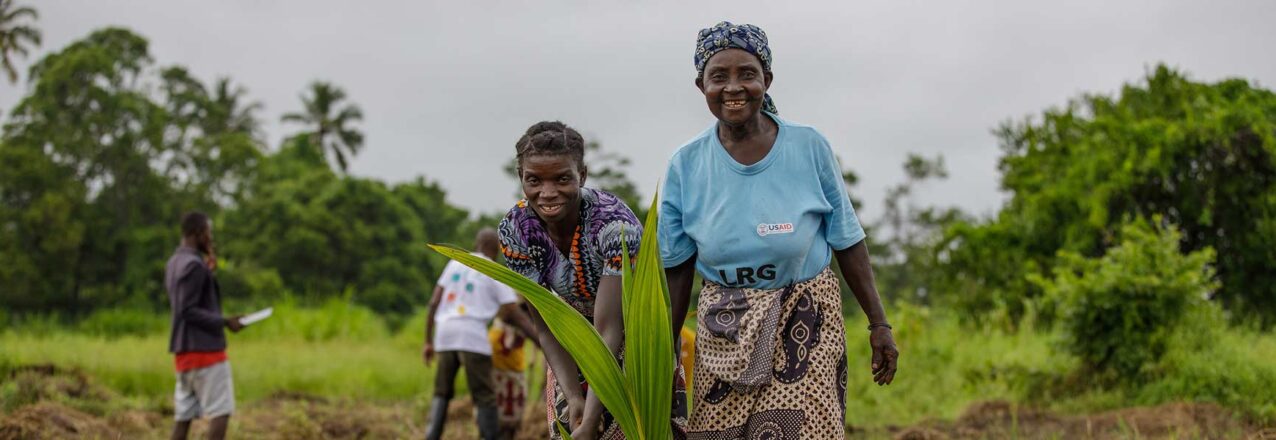Farming is risky business and for women farmers, the risks are compounded. As the Food and Agriculture Organization of the United Nations (FAO’s) new Status of Women in Agrifood Systems (SWAS) report makes clear, women farmers and agricultural workers face hurdles that men do not. Women have unequal access to and control over key productive assets and resources compared to men. In many countries, women have lower levels of education and limited access to finance and technology. Women continue to bear a greater burden of unpaid domestic and care work and they receive lower wages than men. Globally, these constraints contribute to a gap of 24 percent in the productivity of similarly sized male- and female-managed farms.
Closing the persistent gender gap between women and men in agrifood systems would, FAO estimates, increase global gross domestic product by nearly $1 trillion, reduce food insecurity for 45 million people, significantly raise the incomes of another 58 million and increase the resilience of 235 million. In other words, if we want to achieve food security, nutrition, and resilience goals, we need to help more women succeed as farmers, workers, and entrepreneurs in agrifood systems.
Increasing Women’s Access and Agency
Promoting gender-transformative ownership of a variety of natural resources is an important component of reaching these goals. Land ownership, or secure land rights, remains out of reach for women in far too many countries. Forty percent of the world’s economies still place limits on women’s property rights. Approximately 480 million women feel insecure about their land and property rights. Beyond unequal legal standing, the source of this insecurity is often located at home and comes from family members. Social and gender norms keep many women who may have legal rights to own, inherit or receive land and property from claiming their share.
The problems women farmers face go beyond limited agricultural land ownership. On average, women own less livestock than men do, and the livestock they do control tends to consist of less profitable breeds. They have less access than men to irrigation and fewer formal rights to use water for irrigation. They may face legal or customary barriers to planting and using certain trees and tree products. Women have less access to inputs and technologies like seeds, fertilizers and mechanized farm equipment. All of these items are forms of property that can help increase resilience, income and food security. This suggests that finding ways to diversify and secure natural resource assets and property women control should be an important element of gender-transformative agricultural programming. A focus on helping women navigate and negotiate social and gender norms in agrifood systems is also a necessary component of this work. Combined with efforts to support collective action and improve access to education, training and financial products, integrated programming can help transform women’s lives while transforming agrifood systems.
Empowering Women Farmers in Mozambique
As Administrator Power’s recent announcement of USAID’s $335 million Generating Resilience and Opportunities for Women (GROW) effort demonstrates, USAID is committed to addressing the ongoing challenges that women in agrifood systems face, righting persistent imbalances in gender equality. USAID has good examples to build on. In the central Zambézia Province of Mozambique, USAID is partnering with domestic agribusiness firm Grupo Madal to reduce some of the risks women farmers and the company face. Grupo Madal has operated in Mozambique for a century. Over the past several years, local people have been encroaching on the company’s land, using it for subsistence farming. A majority of these farmers are women, working parcels of less than a quarter hectare with no real security.
In 2016, the company adopted a more inclusive business model designed to increase and improve engagement with surrounding communities. To support this work, USAID is helping Madal create land use agreements and farming contracts for 1,300 in-growers (85 percent of whom are women). Women who previously used the risky strategy of encroachment to produce food now have secure access to demarcated parcels as well as contracts that allow them to grow crops for their own consumption and for sale to the company. At the same time, in surrounding communities, which contain many out-growers, USAID is helping to register community land rights to increase their economic security. The company is providing both groups, in-growers and out-growers, with gender-responsive extension services, inputs including coconut saplings and seeds, and purchase guarantees for some crops. Following the devastation wrought by Cyclone Freddy, which destroyed thousands of homes in Zambézia and flooded low-lying areas, Madal rapidly pivoted and distributed cowpea seeds to farmers to provide a quick-growing crop that could deliver food and some income after the storm washed away recently planted sesame from in-growers fields.
The Madal approach is showing early promise and helping build resilience by increasing women’s access to agricultural land, providing inputs and training, and addressing social and gender norms. Women farmers have increased their productivity and incomes. USAID-supported training to producer groups addressed women’s empowerment, including the benefits of expanding women’s decision-making over land uses and household expenditures. For Grupo Madal, the integrated programming efforts have reduced disputes with community members, expanded their supply base by integrating more women producers into their supply chain and improved yields. The Madal partnership has been so encouraging as a model on how to close the gender gap in agrifood systems that Mozambique’s Ministry of Agriculture and Rural Development is exploring possible expansion to other companies and provinces.
Improving Community Resilience
As the global community grapples with the climate crisis with resulting threats to food security, we know women are powerful change agents. While we have made some progress shifting long-held discriminatory gender practices in agrifood systems, there is much more work to be done to ensure that the powerful ripple effects that happen when women’s contributions to productivity and food security are broadly valued, including unlocked economic opportunities that benefit women, their families and communities and that build inclusive, equitable, and resilient food systems, benefit us all.


